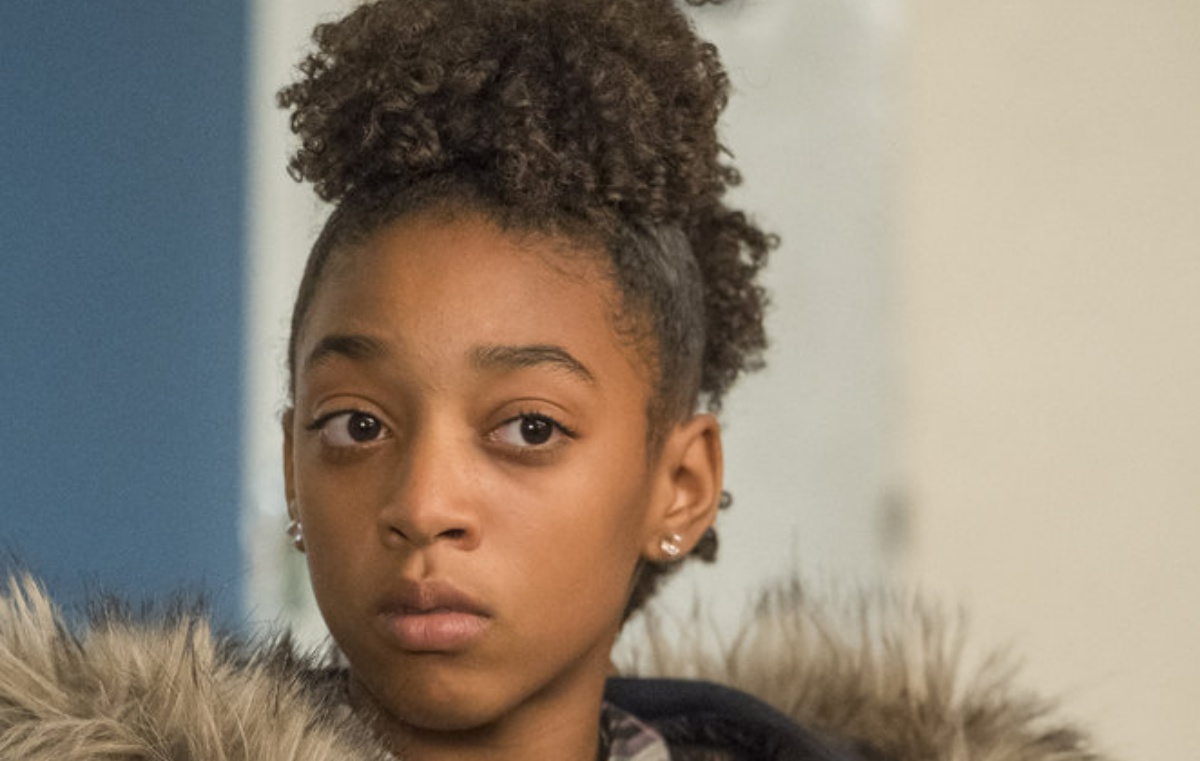Tess Coming out on This Is Us Is a Reminder That Young Black Teens Need Coming out Narratives Too

This Is Us is secretly one of the blackest shows on television due to its extremely inclusive staff—and also because Randell’s storyline is probably one of the best on the show’s ensemble.
This Is Us never shied away from having Randell live a black existence despite having white adoptive parents. In fact, they use that aspect as a way to address the issues that can sometimes come with having a cross-racial identity due to adoption. The show continues to surprise me with its openness and ability to be more than just a typical soap opera (which I enjoy those too). I finally caught up on this show and this scene especially stood out to me.
In the clip above Randell and Beth’s older daughter, Tess, played by the awesome Eris Baker, tells them that everyone else in school is having crushes and boyfriends, but she doesn’t want a boyfriend. In typical hetero/cis fashion Randell is briefly like “oh that’s totally fine” because dad, but Tess then adds that she thinks this is because her attraction is to girls.
Tess breaks down in tears, saying, “But I don’t know. Maybe I don’t. It’s just … I didn’t want to tell you guys because I didn’t want it to become a thing.” And by a thing, even though she doesn’t say it, she’s talking about homophobia and the fear that this will change the way her parents view her.
Thankfully this is Randell and Beth, the most empathetic black couple since the Huxtables, and they instantly tell Tess that they love her and that they “love [her], no matter what.” The confirmation of love that Beth gives Tess moved me to tears because that sort of black parental love when it comes to LGBTQ kids is still something we are lacking in mainstream media. That scene is right there up there with the father’s monologue from Call Me By Your Name because Susan Kelechi Watson as Beth says everything you want a parent to say when you come out, especially as a black child.
Despite the progress we have been making when it comes to representation, most coming out stories that we have in mainstream film and television are about white gay people.
Blackness and homophobia are often seen as an interconnected thread and while there is most certainly homophobia in the black community, there is homophobia is all communities. Coming out is hard for anyone, but the hypervisibility of black homophobia in media adds an extra layer to the anxiety of coming out for gay black people—and creates this illusion that non-black spaces would be more welcoming when that is sadly very much not the case.
While it is great to see movies about LGBTQ black and brown people who have already come to terms with their sexuality, like Mel from Charmed, coming out in media has largely been a space for white gay people. It’s important that black and brown youth also have mediums affirming their identities and showing themselves being loved by their family members. We need Moonlight, but we also sometimes need some depictions of queer love without constant pain.
To think that black queer women and girls can now look at Tess and see someone who looks like them not only come out to her family but also is affirmed by it. That is so important because one of the biggest things that kept me from coming out to my own mother was because I didn’t have any positive references in my life.
I saw the movie Pariah by Dee Rees around the time I was thinking about coming out. While the movie is excellent, the rejection the main character gets from their mother, played by Kim Wayans in a fantastic performance, was my deepest fear. I didn’t have a Tess to look to in the hope that could be my fate. Seeing as how my mother did and continues to accept and love me unconditionally, I wish I’d had access to that hope at an early age.
Now, in addition to William, who was a bisexual man, we have two black LGBT characters on This Is Us (in fact it was Tess who knew the term bisexual in reference to her grandfather) and I’m glad that both have been ways to explore gay relationships in black domestic spheres. It’s not just refreshing, but also so very necessary.
(image: NBC)
Want more stories like this? Become a subscriber and support the site!
—The Mary Sue has a strict comment policy that forbids, but is not limited to, personal insults toward anyone, hate speech, and trolling.—
Have a tip we should know? tips@themarysue.com